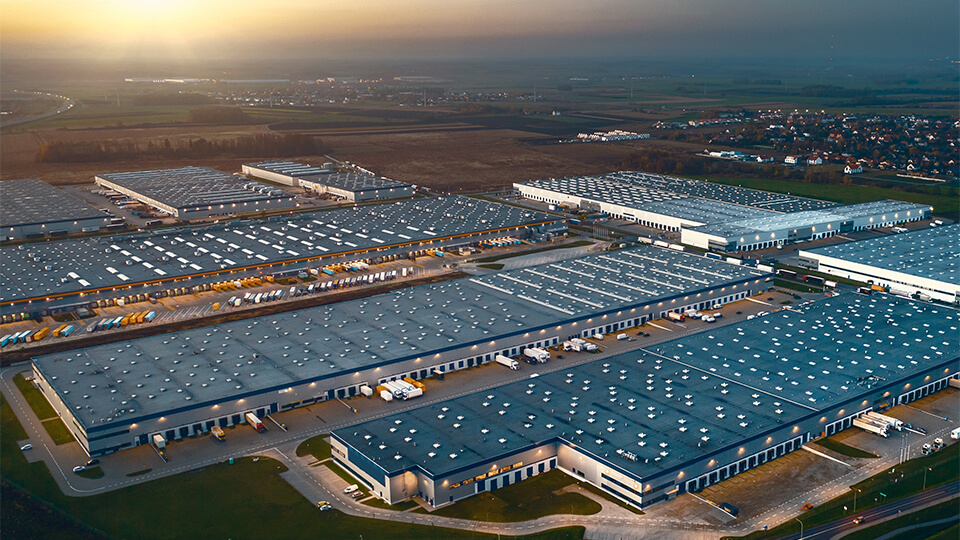A Career Through the Supply Chain: The Chief Supply Chain Officer (CSCO) plays a pivotal role in orchestrating the smooth and efficient flow of goods and services from their point of origin to the end consumer, while balancing increasing costs, stringent regulations and ever-present risk.
The function has moved from the back office to the boardroom in recent years and is under the constant spotlight in the face of global disruption and geo-political risk. Lucy Harding joined Sami Naffakh, Chief Supply Chain Officer at Reckitt Benckiser, to discuss his varied career in this field, the evolution of the role and outlines why anyone following in his footsteps can also be assured of an interesting journey.
The diverse field of supply chain
When I entered the field in the early 90s, I was more interested in general engineering-related activities rather than detailed technical work. I was offered a team leader position as a project engineer which, over time, evolved to plant management and supply chain management. I was with Unilever for around 10 years which was a fantastic learning opportunity in understanding how to utilise resources - human and otherwise - to get things done.
At Reckitt Benckiser, in the early days before I rejoined, learning how to operate within an entirely different environment at a completely different pace was a key stage of my career. Moving to Danone, which was a very decentralised and network-based organisation and at the time, there was no global supply chain representative, so we had to work in very close partnership with the commercial organisation. Arla operated a cooperative business model which was a completely unfamiliar but fascinating environment.
The supply chain evolution
The function has become much more integrated - when I started, there wasn't anything like supply chain, it was all manufacturing and logistics. I witnessed supply chains becoming embedded and now I can see them expanding beyond the remit of enterprise and developing into the management of suppliers and ultimately the entire ecosystem.
Supply chain has become more complex because it's an increasingly global function which requires much greater sophistication of planning and human systems - and has naturally gained a lot of visibility at executive committee and board levels.
The recent supply chain crises and global disruption has highlighted the criticality of a robust supply chain and what a competitive advantage it can be.
Challenges in the field
Undoubtedly, the volume and scale of industry disruption occurring almost concurrently over the last four or five years, has been quite unprecedented. Each supply chain has had to reinvent and adapt themselves as a result. Despite the challenges, seeing people delivering through a crisis, taking the lead and seeing collective accomplishments, is hugely rewarding.
Essential skills of a supply chain leader
Leaders in this space need to have some sound technical knowledge but not necessarily technical engineering expertise. This is a field where things are changing fast due to technology, new processes and the evolution of the environment. You need to learn quickly and convert your knowledge into vision, strategy and action.
Being at the centre of the network of internal and external stakeholders, you need to have outstanding communication. influencing and collaboration skills.
Agility, adaptability and resilience are also essential to navigate through the supply chain ecosystem effectively and considering the pace of change, continuous learning is also crucial.
Alongside these personality traits, there are some career milestones that have helped me achieve the CSCO role in the global companies I have worked for. Real life experience of working in different cultures is important and spending time in international markets on the ground gives a greater understanding of how to lead a global team.
Gaining experience across all elements of the end-to-end supply chain, from engineering to manufacturing, planning, procurement and logistics with a level of technical knowledge of how these pillars interlink, is vital.
Obtaining a mix of operational, functional and headquarter-based roles is also significant - whilst life is on the shop floor, it’s necessary to understand how the corporate layer works and how to drive value to the operation.
The future of technological change and innovation within supply chain
The combination of AI and Quantum will be radical, providing greater real time visibility to allow faster responses from the supply chain, meaning we will be able to connect dots that we can’t connect today. However, we do need to be careful of the societal impact of technology - it will shake up the labour markets as we know them today.
Our executive search reach is global and cross-sector. Through our global networks, we identify, attract and assess the most talented leaders to navigate your business through change, disruption and transformation.
__________________________________________________________
Get in touch. Follow the links below to discover more or get in touch. To discuss this topic or procurement and supply chain leadership more generally, please contact Lucy Harding, Partner, Head of Supply Chain & Procurement Practice.

Never miss an issue
Subscribe to our global magazine to hear our latest insights, opinions and featured articles.
Follow us
Join us on our social media channels and see how we're addressing today's biggest issues.



